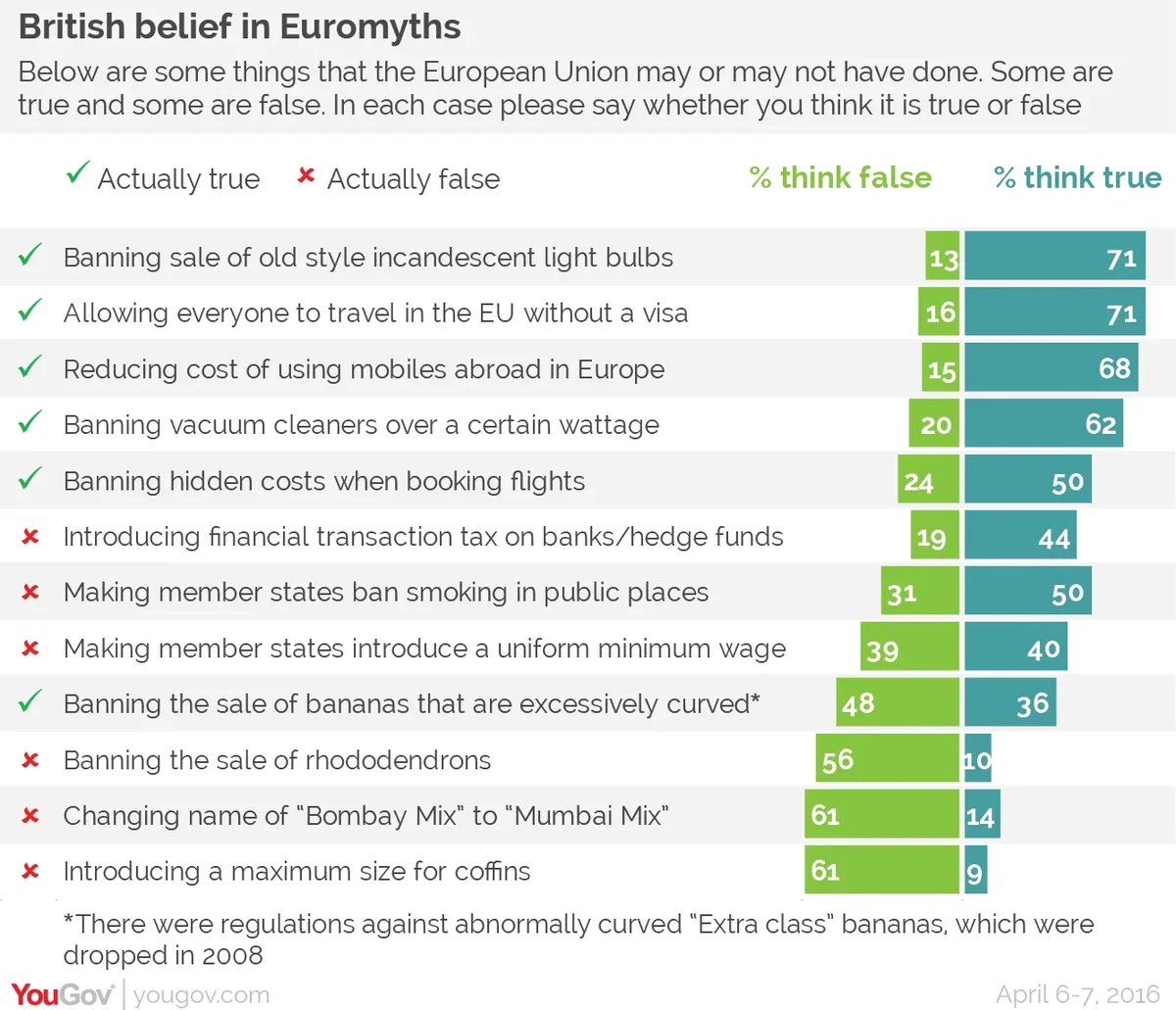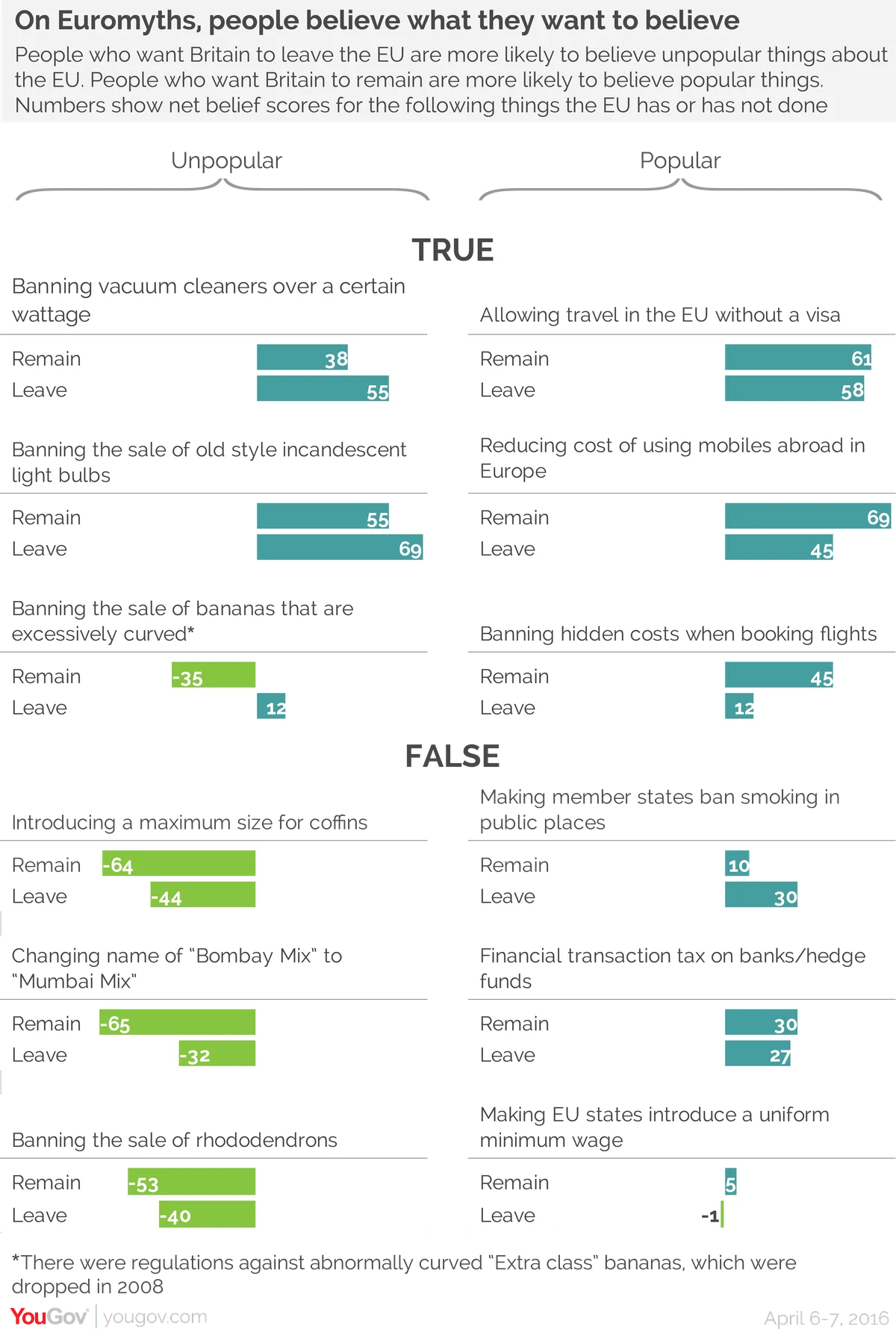The British public can generally tell what is and is not a 'Euromyth', but how likely you are to believe good or bad things about the EU does depend on your stance on British membership
Last week Eamonn Butler, the free market advocate and head of the Adam Smith Institute, tweeted out a claim that European regulations on the sale of cabbage were 26,911 words long - compared to the 179 words in the Ten Commandments. Unfortunately for him, however, this simply isn't true and is, in fact, a 'Euromyth'. The reality of European rules banning certain food additives has long co-existed with jokes, and myths, of Brussels forcing us to rename our fatty sausage as 'emulsified high-fat offal tubes'.
Research from YouGov shows, however, that the British public can generally tell what Euromyth from Eurofact.
Most people (71%) know, for example, that European rules led to the phasing out of the old incandescent light bulbs by 2012. 71% also know that EU rules allow visa-free travel within the Union. When it comes to the ban on hidden costs when you buy airline tickets, people are more sceptical of this being a rule from Brussels, but 50% do still think that it is true that the EU banned hidden flight costs.
Tabloid fodder Euromyths are widely recognised as such by most of the public. Only 14% of the country believe that the EU wanted to change the name of 'Bombay Mix' to 'Mumbai Mix', while 56% know that it is not true that the EU tried to ban the sale of rhododendrons.
The public do get it wrong on some issues, however. People tend to think that it is true that the EU imposed a financial transaction tax on banks (44%), and wrongly tend to think it is false (48%) that there were once regulations against excessively curved bananas. Half also think that the EU was behind a Union-wide ban on public smoking.

Broadly speaking, however, people end up believing what they want to believe. Those who want Britain to stay in the EU are less likely to believe that the EU was responsible for certain unpopular things, while people who want to leave the EU are more likely to think that EU was responsible for those things.
For example, people intending to vote to remain in the EU are 24% more likely to say that the EU was behind lower European roaming costs for mobile phones than those who want to leave, which is true. They are also, however, 17% less likely to admit that the EU banned high wattage vacuum cleaners, something which is also true.









